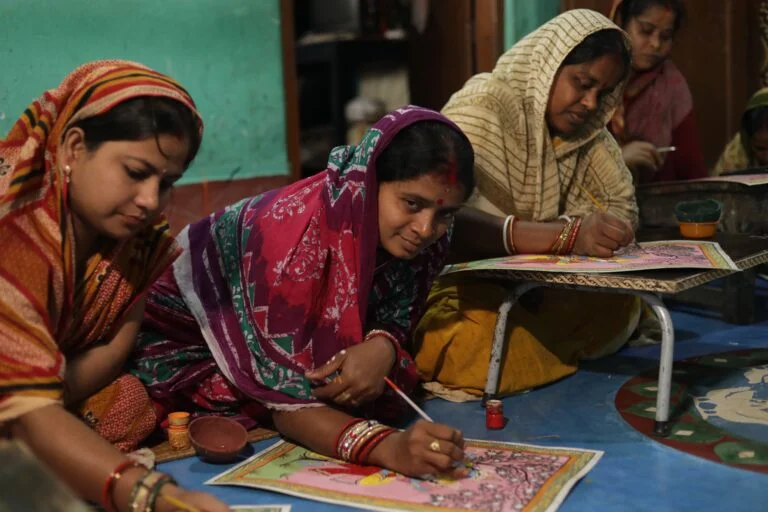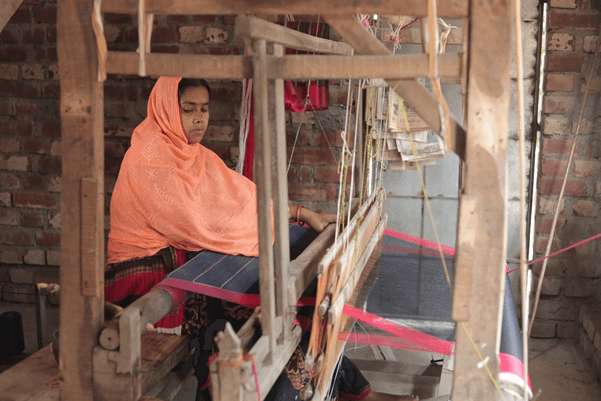Why Our Rural Communities Need to Be Vocationally Trained?
When we asked our LinkedIn community of Tisser India, what is most integral for the growth of women in rural communities amongst the options of community growth, enabling migration to cities, providing academic education and vocational training, a majority of people voted for vocational training. While the other three options are just as considerate and important for the well-being of villages, the pandemic has made us realize that vocational training has been more important than ever.
Vocational training can be explained as a skill people learn which makes them employable. While that’s an upgrade for people in urban landscapes where majority get good education and training, it can prove out to be revolutionary for the people in rural landscapes, especially women, who have the constraints of education, time, and resources. Vocational training for the win!
“A significant, and, highly welcoming step in addressing this skill gap is the New EducationPolicy 2020 2 which integrates Vocational education into all school and higher education institutions in a phased manner over the next decade. A bulk of workforce (70%) emanates from rural India and if, through effective implementation of the policy, we can get them interested in vocational training and provide them that training through their schooling years, we would have made great strides towards developing competent and trained manpower”.(SourceTOI, The Importance of Skilling and Reskilling in Rural India)
As a community, it’s not just the ‘what’ that’s important but also the ‘how’ and ‘why’. While we make handicraft products across the lines and multiple art forms of clothing, décor, stationery, storage, the way we do it by empowering the women in rural communities. While anyone could be making these products, it matters a lot more and impacts manyfold when a woman is trained, skilled, and paid for her contribution. With countless women that we have worked with so far, we have always left them more empowered and skilled than before. That’s a goal we strive for. The women themselves have claimed how this opportunity has changed them in fulfillment of their desires and needs. While some women are better able to provide for their families, some pass down these skills to the kids, while some move up the ladder and become trainers to other women, some take lead.
There is an old Chinese proverb that says that if you provide a man with a bowl of rice, you feed him only for a day. But if you provide him with the skill and resources, you will feed him for a lifetime. Tisser India has been in pursuit of the same by empowering women to sustain livelihoods. The communities can grow to its potential, if skilled and invested in.












